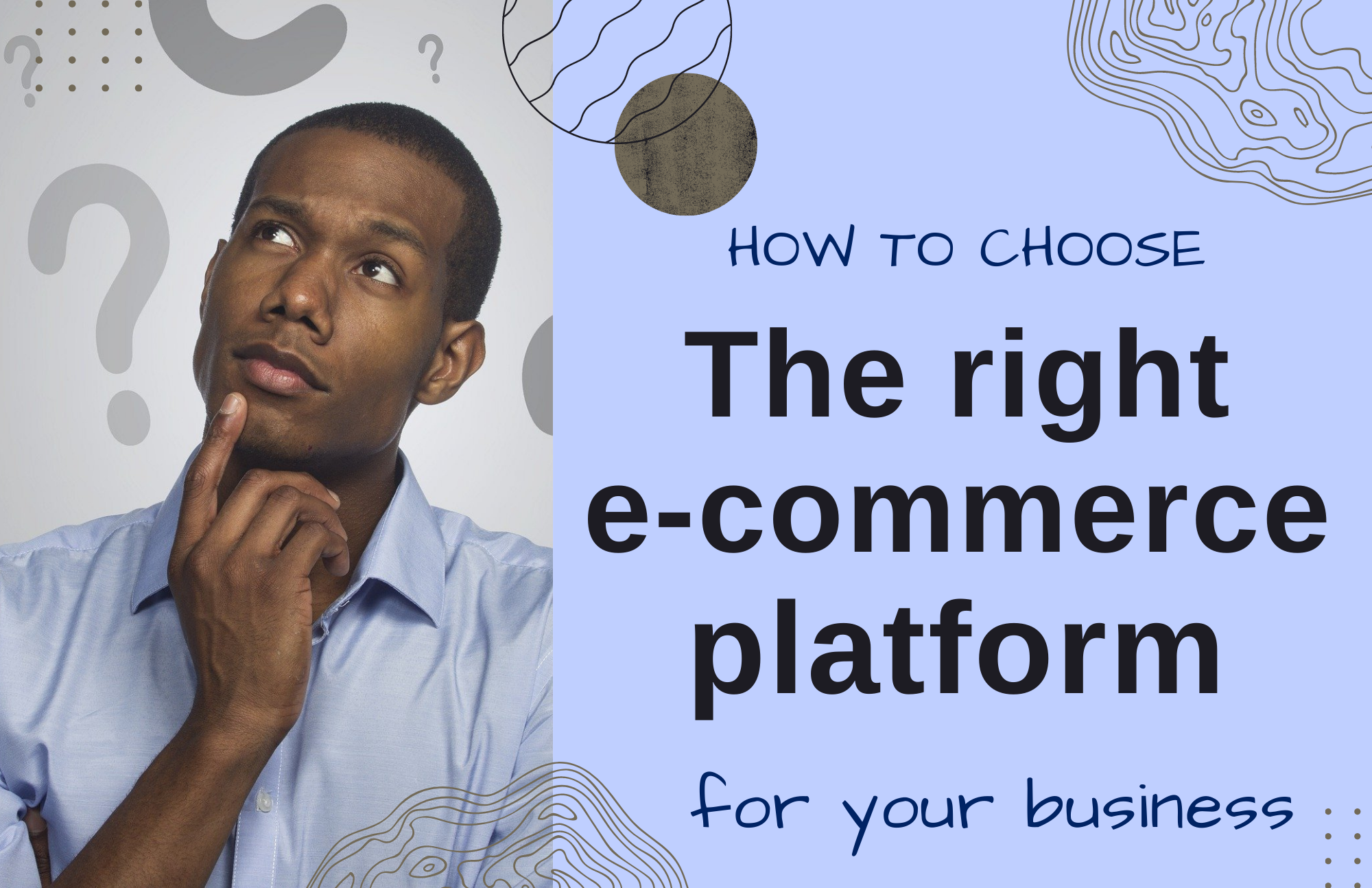
According to statista.com retail e-commerce sale worldwide is estimated to be around 4.28 trillion between 2014 and 2024 and e-commerce will have almost 22% share of total global retail sales. Yes, you read it correctly! But, doing and growing your business via digital channels is not a very simple task like making a product list on the website and awaiting huge sales revenues to come rolling in. Remember, your website is just the shop face. Over and above this, Inventory management, financial transaction management, and lots of paperwork are inlying. That is the point where you will think about a suitable e-commerce platform for your store which can bring ease and proficiency in your overall business maintenance. Here, in this article, you will find a brief but complete guide to choose the right e-commerce platform for your business.
Simply describing, the e-commerce platform is a software solution that allows online business owners to manage all their online business activities in a systematic and easy way. When a business grows beyond its website's capacities only then do people think about an e-commerce platform.
If you want to set up and manage an e-commerce business, you need to be a strategic thinker and skilled planner, just like an offline business owner. After you have got a fundamental spot on, then you can get the benefit of the digital environment where a lot of the tasks and activities can be automated and streamlined that might have required human intervention. An e-commerce platform will determine and control the following four significant things of your business:
People often topple over popular e-commerce platforms for their businesses. But the reality is finest software is the one that meets your objectives. Different business has different set of outcomes to achieve. Besides those, existing technological setups and expert manpower are important things to consider. Important tips here are:
When your niche is very uncommon to match with the commonly available platforms in the market you can go for your very own platform developed. Examples include zCart Multivendor Platform
Original source code of open source platform is made available to anyone for free. Thus this type of platform can be modified by anyone according to the need. Some popular examples include wooCommerce, Magneto, etc.
To use a licensed platform at first you have to pay for the license which you have to renew each year. You can customize some features according to your need with the help of your IT department and use them on-premise or in the cloud. Z cart is a good example of a licensed platform.
A platform that can be accessed by the users through the internet is called SaaS or a web-based platform. You need not install it on the computer; rather you can access it via the website.
Payment gateway is a special processor for moving funds from a client’s bank account to the seller’s. Most of the customers reject software only because of the payment gateway which is not compatible in his country. Before selecting a platform makes sure that:
Your design sense of the store may be a bit classy to fit in a rigid system. Ask the provider if they have options to modify the store face. The modification may be in the form of color, pictures, and backgrounds. So, make sure the platform can provide you with:
As a store owner, you must be familiar with some security terms like PCI. PCI is a set of 12 security standards that are applicable to websites that receive and store payment information. Before purchasing a software be informed whether the platform
The main purpose of a business is to earn profit from his store. But the software you are using should allow customers to reach you very easily. Before purchasing software see if they have reputation for their excellent content management system. This will allow:
Social media is getting a powerful source of customers in recent years. People love to get products, product descriptions, and reviews on social media as well. You can check whether the software can integrate your store to social media like:
The platform should have a FAQ section to answer your possible queries and problems. While many platforms already have this but many still don’t. You may have a particular type of support system preference like chat, calls, email, or any other. Check the platform has any of the following support systems:
Before choosing the software you must set your objectives. In short, your selection should be objective-based. You may have particular objective regarding:
In order to grow your business through an online platform, you need some features in it. But software having unnecessarily excessive features is a complete wastage. You will pay for what you need, the equation is as simple.
Some platform builders make a rigid platform and customize their systems in a way that fits the platform. But those systems may not meet your requirements. You should pick a platform that best suits your business.
Whatever you see, remember that there is nothing like one-size-fits-all. Platforms that are famous and costly may not be the best ones for you. You should try to make a requirement list for the present and future and dig into available platforms to find out the best one for you. Take a smart move, have the possible largest slice of the pie.